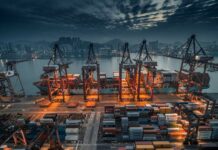It is well to note that the food traceability technology market plays a major role in food safety by improving it and also by providing a methodology for tracking, tracing, and documenting the journey of food items all across the supply chain. It is therefore crucial for food brands as well as packaging professionals to be well informed on the latest trends and developments that are taking place as far as this arena is concerned.
Let us look into five things to know about the technologies so as to underpin the quality and integrity of the worldwide food supply chain.
Food traceability will form a pivotal part when it comes to the supply chain
As per a report that is scheduled to be released in April 2023, the technology that is used in the traceability of food is anticipated to hit $29.43 billion by the end of this decade, which goes on to highlight the value as well as the importance on a worldwide scale. The market, which had a valuation of $12.86 billion in 2019, is now forecast to grow at 7.8% on an annual basis till 2030. By way of technology advancement as well as innovation, the field looks to ensure the customers faith all over the globe because of the rising recognition of food safety issues and also the surge in demand when it comes to assured product provenance.
The fact is that traceability makes sure that the food products travel through the supply chain in a more accountable manner, thereby enabling businesses to be sure that their products are safe and that high quality is maintained.
Besides this, traceability can help in mitigating the costly recall risks while also providing consumers with the much-needed peace of mind with regards to where their food originates.
Food traceability accuracy and efficiency will be enhanced by new technology
The food traceability sector is going through a revolution by way of introducing new technologies that will enhance accuracy as well as efficiency when it comes to tracking food right from the farm to the table. Be it smart labels as well as track-and-trace systems that are blockchain enabled and also integrated platforms, all happen to be some of the new tools that ensure that the safety standards in food are met, thereby instilling confidence in the consumers in the food that they consume. These new technologies go on to help the brands rapidly respond to food safety challenges and, at the same time, provide better consumer transparency that allows for a safer and more robust food supply chain.
Food Traceability Growth will continue to be driven by globalization
Because of the rise in the number of worldwide trade partners, there is an expanding need to make sure that demand for traceability solutions increases. The traceability technology can go on to help the companies identify the location, source, as well as ownership when it comes to food products as and when they move across the supply chain, thereby making it pretty much easier to trace and track the items that have turned contaminated. This technology also goes on to provide companies with essential ways to reduce losses because of product recalls and also ensure the safety of consumers. Because of this, the food traceability growth industry is likely to move forward as more and more companies begin to realise the benefits of making use of such technology.
Focus needs to be put on the emerging markets by food traceability companies
As the food traceability sector continues to expand its horizons, companies are indeed recognising the significance of emerging markets. By keeping a close eye on regions like Latin America, Southeast Asia, and Africa, the food traceability firms can very much expand their customer bases, thereby moving towards new areas in terms of growth.
These markets often happen to be less saturated as compared to other regions, thereby creating a great opportunity for companies to capitalise on. Moreover, by making their way into these markets, the companies can also benefit from the robust local food cultures that are seen across these regions, leading to establishing themselves as industry leaders.
Food Traceability faces challenges from rising government regulations
Since the food sector continues to see its much-deserved growth, governments across the world are increasing sector regulation so as to ensure food safety. The novel regulations continue to challenge the leaders of the industry to stay atop of the latest regulations and also comply with them, or else go on to face hefty fines. Organisations must invest in the new tech and systems that are indeed pivotal to addressing compliance, which happens to be an extra cost. As the sector continues to witness growth, it is highly likely that the governments are going to push for more regulations, thereby making it very difficult for those in the sector to stay ahead of the game.




























